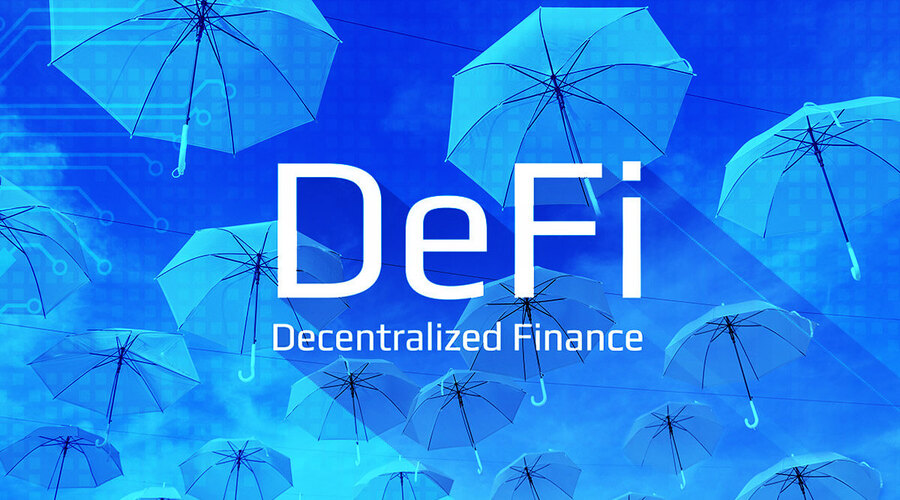Introduction
Decentralized Finance (DeFi) has introduced innovative insurance solutions that provide coverage for various risks. In the event of a loss or incident, insurance claims play a crucial role in ensuring liquidity providers and users can recover their losses. In this article, we will explore the processes and procedures involved in insurance claims within the DeFi space.
Types of Insurance Claims
In the DeFi space, different types of insurance claims may arise, depending on the specific coverage provided. Some common types of insurance claims include:
- Smart Contract Hacks: Claims related to losses resulting from vulnerabilities or exploits in smart contracts.
- Collateral Shortfall: Claims for losses incurred due to a shortfall in collateral value or liquidation events.
- Oracle Manipulation: Claims resulting from price manipulation or inaccurate data provided by oracles.
- Loss of Funds: Claims for funds lost due to unauthorized access, theft, or fraudulent activities.
- Protocol Failures: Claims arising from failures or disruptions in the operation of DeFi protocols.
Initiating an Insurance Claim
Initiating an insurance claim in the DeFi space typically involves the following steps:
- Notification: The insured party must notify the insurance provider promptly after the incident or loss occurs. This notification triggers the claims process and allows the insurance provider to assess the situation.
- Documentation: The insured party needs to provide supporting documentation, such as transaction records, evidence of the incident, or any relevant communication. Clear and comprehensive documentation helps substantiate the claim and assists in the claims assessment process.
- Claims Assessment: The insurance provider evaluates the claim by assessing the documentation provided, investigating the incident, and verifying the coverage terms. This assessment involves determining the validity of the claim and the extent of the coverage provided by the insurance policy.
- Claim Settlement: If the claim is deemed valid and covered by the insurance policy, the insurance provider proceeds with the claim settlement. This may involve reimbursing the insured party for their losses, providing compensation, or taking other agreed-upon actions outlined in the insurance policy.
Claims Evaluation Criteria
Insurance providers in the DeFi space evaluate claims based on specific criteria, which may include:
- Coverage Terms: Claims are assessed against the terms and conditions outlined in the insurance policy. The coverage limits, exclusions, deductibles, and other policy provisions play a significant role in determining the eligibility and extent of coverage for a claim.
- Evidence of Loss: Insurance providers review the evidence provided by the insured party to verify the occurrence of the loss or incident. This may include transaction records, blockchain data, audit reports, or other relevant evidence.
- Proof of Ownership: Claims require proof of ownership or participation in the covered DeFi protocol. This may involve providing wallet addresses, account statements, or other evidence that establishes the insured party’s connection to the affected protocol.
- Verification of the Incident: Insurance providers investigate the incident or loss to validate its occurrence, identify any contributing factors, and assess the impact on the insured party. This may involve collaboration with experts, auditors, or other relevant parties to ensure an accurate evaluation.
Dispute Resolution and Appeals
In case of disagreements or disputes regarding the claim assessment or settlement, DeFi insurance protocols typically have mechanisms in place for dispute resolution and appeals. These mechanisms ensure fair and transparent resolution by involving independent arbitrators, mediators, or specialized committees. Dispute resolution processes aim to address any conflicts in a timely and unbiased manner, maintaining the trust and integrity of the insurance claims process.
Claims Handling and Timelines

Insurance providers in the DeFi space establish specific claims handling processes and timelines to ensure efficient and timely resolution. Clear guidelines are set regarding the expected timeframe for claim submission, documentation requirements, and the duration of the claims assessment process. Transparent communication channels and regular updates keep the insured parties informed about the progress of their claims, providing clarity and reassurance during the claims settlement journey.
Coverage Limitations and Exclusions
DeFi insurance policies often have coverage limitations and exclusions that outline specific scenarios or events that may not be covered. These limitations and exclusions are designed to manage risk and ensure the sustainability of insurance coverage. It is essential for insured parties to thoroughly review their insurance policies to understand the scope of coverage and any potential limitations or exclusions that may impact their claims eligibility.
Role of Audits and Security Assessments
Insurance claims in the DeFi space may involve audits and security assessments to validate the occurrence of the incident or loss. Insurance providers may collaborate with independent auditors or security experts to conduct investigations, assess the impact of vulnerabilities or exploits, and determine the legitimacy of the claims. These audits and security assessments play a crucial role in ensuring the accuracy and integrity of the claims evaluation process.
Regulatory Compliance and Claims Handling
DeFi insurance protocols must adhere to regulatory requirements and compliance standards when handling insurance claims. This includes protecting the privacy and confidentiality of insured parties’ information, implementing robust data protection measures, and complying with relevant laws and regulations. Adhering to regulatory compliance standards ensures that claims handling processes are conducted in a secure and compliant manner, safeguarding the interests of the insured parties.
Continuous Improvement and Feedback
Insurance claims processes in the DeFi space are subject to continuous improvement based on feedback and insights gathered from the claims handling experience. Insurance providers actively seek feedback from insured parties to identify areas for enhancement, streamline processes, and improve overall customer satisfaction. Regular evaluation and feedback mechanisms contribute to the ongoing refinement of claims processes and the provision of better services to insured parties.
Communication and Support Channels
Effective communication and accessible support channels are essential during the insurance claims process. Insurance providers in the DeFi space should establish clear channels of communication, such as dedicated email addresses or support tickets, to facilitate prompt and efficient communication between insured parties and the claims team. Providing timely responses to inquiries and offering guidance throughout the claims process helps ensure a smooth and satisfactory experience for the insured parties.
Fraud Prevention and Investigation
Insurance claims in the DeFi space require robust fraud prevention measures to protect against fraudulent activities. Insurance providers implement thorough investigations to detect and prevent fraudulent claims. This may involve reviewing transactional data, analyzing patterns, and collaborating with cybersecurity experts or specialized fraud detection firms. By actively combating fraud, insurance providers maintain the integrity of the claims process and protect the interests of legitimate claimants.
Coordination with DeFi Protocols and Smart Contract Auditors
Insurance claims in the DeFi space often require coordination with the relevant DeFi protocols and smart contract auditors. Insurance providers collaborate closely with these entities to gather necessary information, validate claims, and assess the impact of incidents on insured parties. This coordination ensures a comprehensive understanding of the technical aspects and context surrounding the claims, enabling accurate and informed claims evaluations.
Continuous Education and Awareness
Education and awareness initiatives are crucial to help insured parties understand the insurance claims process and their rights and responsibilities. Insurance providers in the DeFi space should offer educational resources, such as FAQs, tutorials, or webinars, to educate insured parties about the claims procedures, documentation requirements, and expected timelines. By promoting awareness and understanding, insurance providers empower insured parties to navigate the claims process effectively and make informed decisions.
Collaboration with Regulatory Bodies
Insurance providers in the DeFi space often collaborate with regulatory bodies to ensure compliance with regulatory requirements and standards. These collaborations may involve sharing information, seeking guidance on compliance matters, or participating in industry discussions and initiatives. By working closely with regulatory bodies, insurance providers contribute to the development of a regulatory framework that protects the interests of insured parties and fosters trust in the DeFi insurance ecosystem.
Continuous Evaluation and Improvement of Claims Processes
Insurance providers in the DeFi space engage in continuous evaluation and improvement of their claims processes to enhance efficiency and customer experience. They gather feedback from insured parties, monitor industry trends, and assess the effectiveness of their claims handling procedures. This ongoing evaluation allows insurance providers to identify areas for improvement, streamline internal workflows, and implement changes that optimize the claims experience for insured parties. By actively seeking ways to enhance their claims processes, insurance providers can adapt to the evolving needs of the DeFi ecosystem and ensure that claims are handled promptly, accurately, and with utmost professionalism.
Conclusion
Insurance claims are an integral part of the DeFi insurance ecosystem, providing protection and recourse for liquidity providers and users. By understanding the processes and procedures involved in insurance claims, participants in the DeFi space can navigate the claims process effectively, ensuring that they can recover from losses and continue to engage in DeFi activities with confidence.

